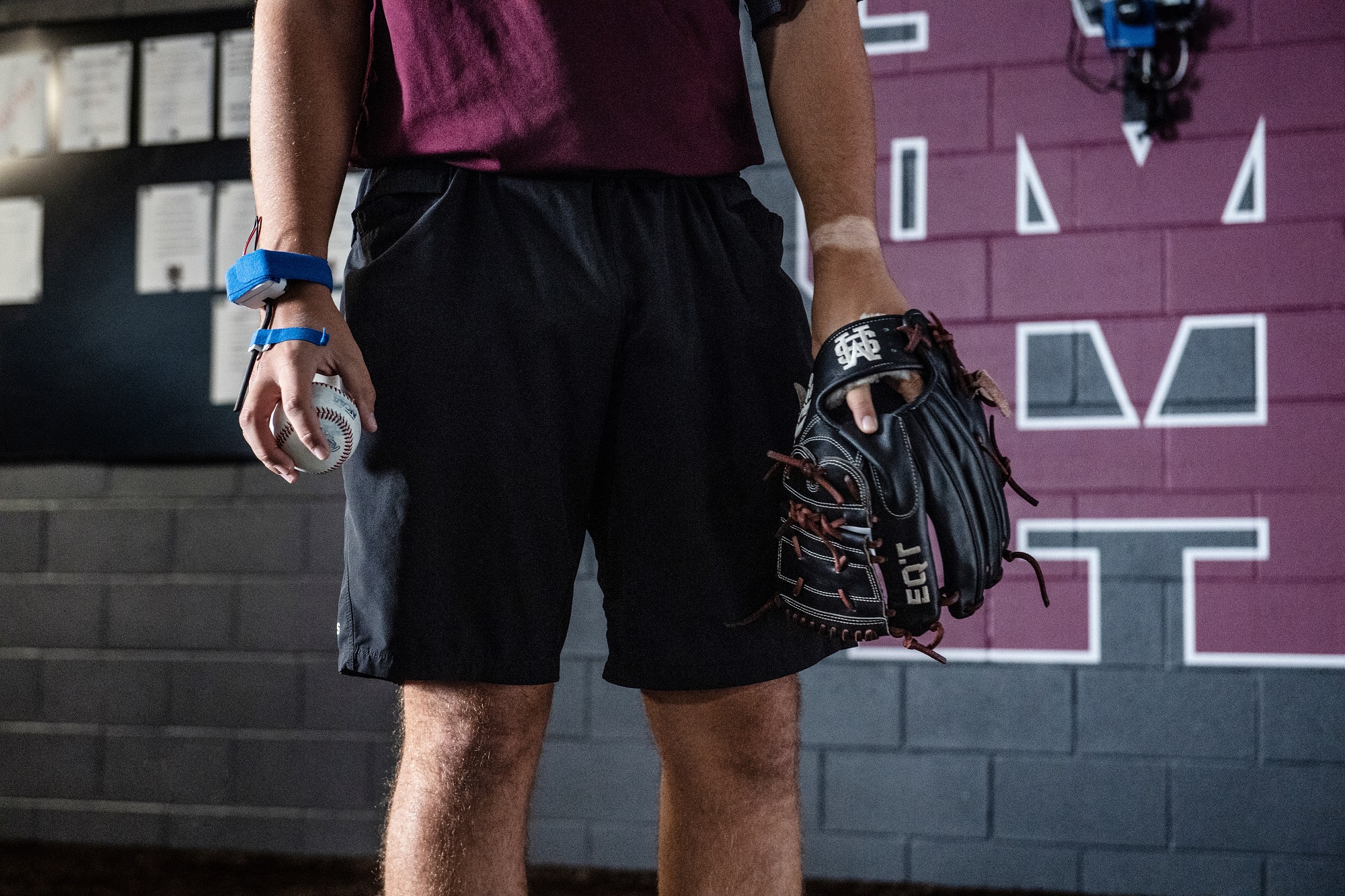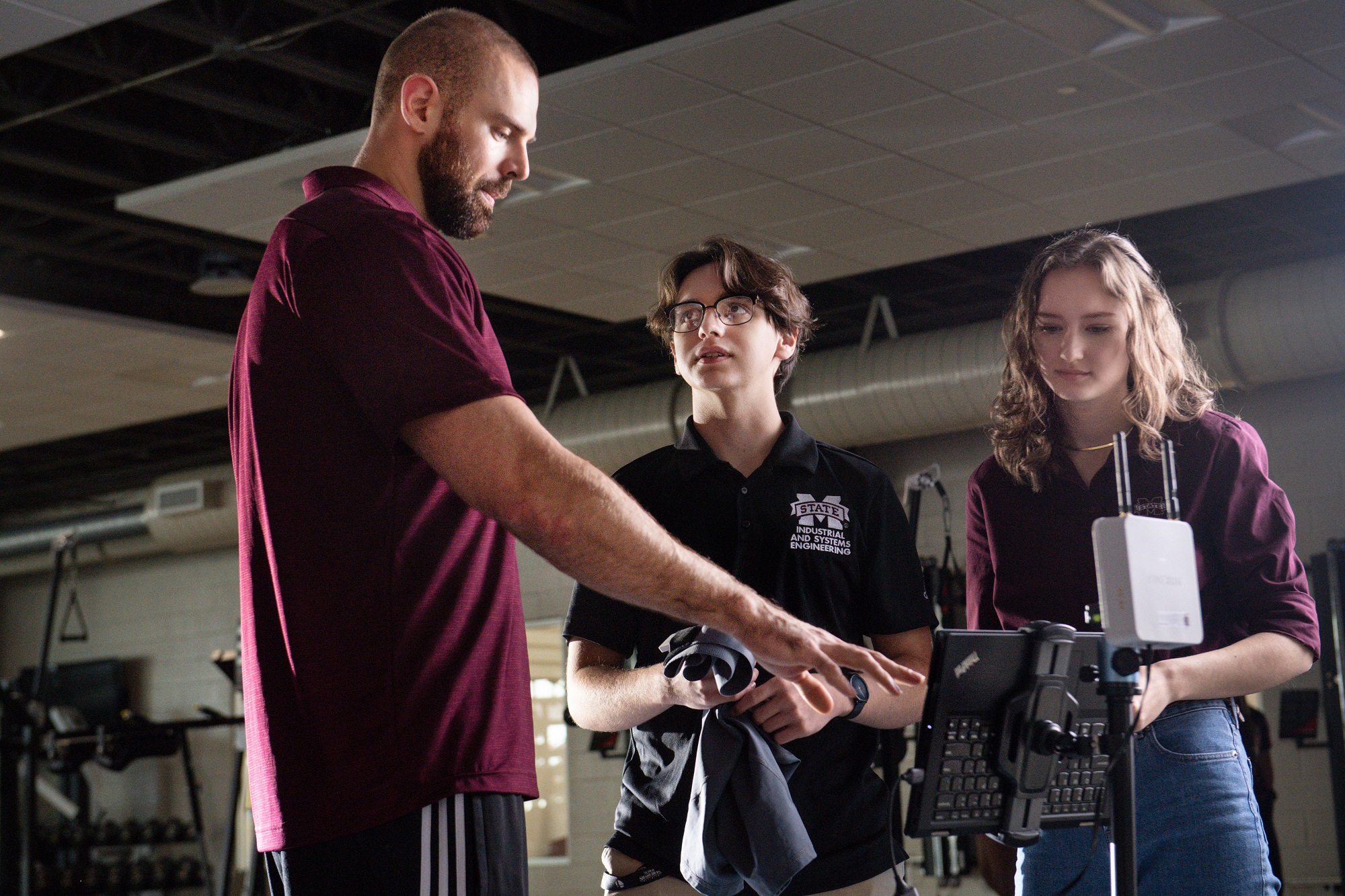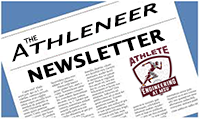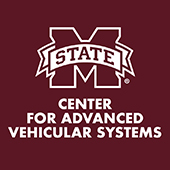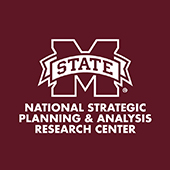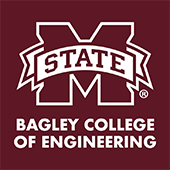Athlete Engineering
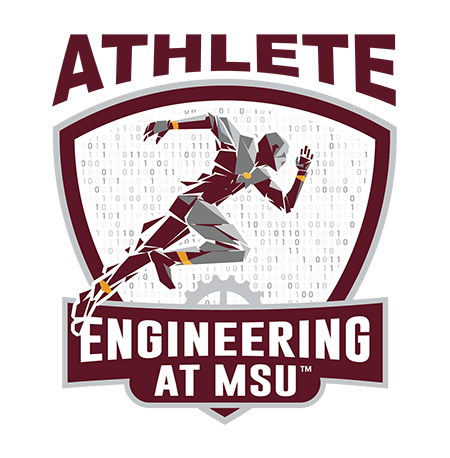
With the rise of wearable technology, the sports industry has begun introducing data scientists into teams'
organizational environments, who influence the training, performance, and recovery programs of athletes.
To meet the growing demand for these specialized professionals, Mississippi State University has responded
by investing in athlete engineering, a multidisciplinary research collaboration between the university's
academic and athletic departments to explore human performance, processes, and analysis.
Funding and mentorship are provided by MSU's Center for Advanced Vehicular Systems (CAVS), Bagley College
of Engineering (BCoE), and National Strategic Planning and Analysis Research Center (NSPARC).
The mission of athlete engineering is to align researchers from all engineering disciplines, as well as
kinesiology, sociology, and psychology researchers, with athletic practitioners such as strength and
conditioning coaches, athletic trainers, and nutritionists, to enhance student-athlete safety and link
human factors to performance technology.
With the knowledge that athletic ability plays into a variety of fields outside of sports, MSU's research divides these areas into four distinct Human Athlete Personas:
Some of the primary research areas for this team include:
- Sensor and wearable technology design and validation
- Technology assessment of gait and jumping mechanics
- Unique methods for measuring ground reaction forces and pressures
- Methodology development and testing of wearables and other human performance related solutions
- Analysis algorithm, neural networks, and clustering technique development
- Rehabilitation and pre-rehabilitation assessments through existing and development technologies
- Personal Protective Equipment (PPE) and Smart PPE design and implementation
Education
Aiding athletic programs, including Mississippi State's own athletic department, in making the
best decisions possible regarding health and safety for the student-athlete by utilizing
technology is one of the primary goals of this program. In order to accomplish this, properly
training engineering students to use wearable technology and aid the athletic practitioners
through the collection and organization of human performance data is a necessity. This trained
engineer biproduct is one of the Athlete Engineering program's most valuable outputs, referred
to as "The Athlete Engineering Student Pipeline."
Partners in the NBA, NFL, and MLB, as well as local industrial partners throughout the state of
Mississippi, recognize the existence of a shortage of engineering graduates who have pre-existing,
hands-on experience both collecting and interpreting human performance data in a real-world
environment.
Through student funding mechanisms and mentorship provided via CAVS, MSU's Department of Industrial
& Systems Engineering, and NSPARC, this program was designed to keep one or more graduate or
undergraduate students partnered with each strength and conditioning team in MSU Athletics to:
- run their technology
- generate data reporting for the coaching staffs
- lead research experiments with oversight from both research faculty and athletic practitioners
Engineers now have an educational avenue to gain the experience needed to work in the front office of professional sports teams, to pursue data analyst positions for NCAA Division 1 athletics, or to stay within the state of Mississippi and deploy wearable technology for worker health assessment. Likewise, student-athletes with an interest in STEM education have paths for pursuing a career in sports other than coaching after their days in competition have ended.
Partnerships
Athlete Engineering researchers recognize that the real work happens out in the world and rarely in
the laboratory. As new wearables are designed by the Athlete Engineering research team in the lab and
new vendor solutions are validated against gold standards of measurement, our expert advisory board
committee and our practitioner partners ensure provide feedback ensuring that all research conducted
fits an important need while always being considerate of the real customer. Practitioners from the
NFL, the NBA, the MLB, multiple NCAA athletic programs, orthopedic surgeons, health and safety
engineers from local and regional industries, and workforce trainer programs provide continuous
feedback for every research effort that takes place between the academic researchers and the
"athlete."
Athlete Engineering also recognizes that human performance isn't limited to sports. The repetitive
motion workers in industrial facilities within Mississippi and neighboring states, as well as the
military warfighters at home and abroad are all athletes and can therefore utilize the capabilities
of the Athlete Engineering team. For this reason, research team expertise includes former industry
and military human performance experts. CAVS' primary function is to serve industry and military
partners and, while the sports athletes receive much of the attention from this program, everything
done through Athlete Engineering is completely transferrable to everywhere that human movement and
performance needs evaluation.

